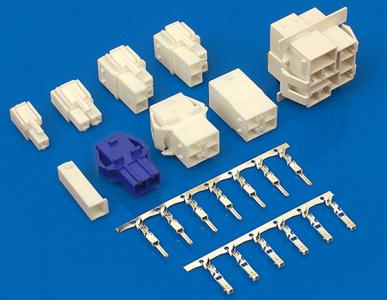In the rapidly advancing world of electronics and electrification, reliable power transmission is a critical foundation for performance, safety, and innovation. At the heart of this power delivery system lies a small but vital component: the battery wire connector. These connectors are indispensable across various applications—from electric vehicles and industrial machinery to renewable energy systems and consumer electronics.
Understanding Battery Wire Connectors
A battery wire connector is a mechanical interface that facilitates the secure transfer of electrical current between a battery and connected circuits. It is designed to handle specific voltage and current levels while ensuring minimal resistance, optimal conductivity, and safety against short circuits, overheating, and vibration.Whether you're designing a high-performance EV battery pack or a small-scale consumer device, choosing the right battery connector ensures your product operates efficiently and safely under various environmental and load conditions.
Key Functions of Battery Wire Connectors
Battery wire connectors perform several critical functions in an electrical system:1. Secure Electrical ContactA well-designed connector ensures continuous and low-resistance electrical contact between the battery and the rest of the circuit, preventing energy loss or power interruptions.2. Mechanical StabilityConnectors must endure vibrations, impacts, and mechanical stresses, especially in automotive and industrial applications. A secure mechanical lock ensures consistent operation even under dynamic conditions.3. Safety AssuranceBattery wire connectors are often designed with insulation features, locking mechanisms, and resistance to arcing or short-circuiting, ensuring that high-current systems remain safe.4. Ease of Installation and MaintenancePlug-and-play design, polarity protection, and user-friendly interfaces are all aspects that make battery connectors ideal for rapid assembly and easy troubleshooting.
Applications Across Industries
The demand for battery wire connectors continues to grow, driven by electrification and energy storage trends. Key application areas include:● Electric Vehicles (EVs)Battery connectors must handle high-voltage, high-current loads while ensuring fast and safe installation, efficient cooling, and resistance to vibration and heat.● Renewable Energy SystemsSolar and wind energy setups rely on battery connectors to safely transmit stored power from battery banks to inverters and loads, often in harsh outdoor conditions.● Industrial AutomationMachines and robots powered by batteries require robust connectors that can withstand high duty cycles and aggressive environments.● Consumer ElectronicsFrom laptops to power tools, small form-factor connectors help deliver stable energy in compact packages.● Medical DevicesIn life-saving applications, battery connectors must meet stringent reliability and safety standards, with resistance to moisture and sterilization processes.
Conclusion
Battery wire connectors, though often overlooked, are central to the performance and safety of countless electronic systems. From powering vehicles and renewable energy installations to enabling smart devices and industrial equipment, these connectors ensure stable, efficient, and reliable energy transfer.For manufacturers and engineers looking to build robust electrical systems, understanding and choosing the right battery wire connector is not just a technical detail—it’s a strategic decision that impacts the entire product lifecycle.If you're looking for precision-engineered, high-reliability battery wire connectors tailored for your application, explore the latest solutions at LHE Connector, a trusted name in the electrical interconnect industry.
https://www.lhecn.com/category/wire-to-wire/c6201c6202/